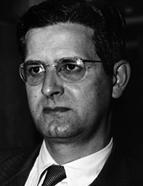

His research and political thinking also dealt extensively with the analysis of the agrarian matters. The mobilisation of poor, rural workers and small farmers in Brazil gained momentum after 1945. In the following decade, this emerged as an open social problem and conflict, with the organisation of trade unions and independent associations, especially in the northeastern states of the country. There, tenants of plots of land located next to large sugarcane plantations suffered the dispossession of their living conditions, labour, and rights to remain on the properties and were subjected to violent confrontations, the murder of rural leaders, persecution, and police repression. The communists' action was timid and a posteriori to the social movement. The political formulations of the peasant struggle and agrarian reform animated debates on the social situation in the countryside, the land structure, the character of labour relations, the place of small-scale agricultural production, and trade unions and political organisations, among other aspects. The author's participation in the debates resulted in the publication of five articles between March 1960 and January 1964 in Revista Brasiliense , later published as a book in 1979. In his articles, Caio Prado argued that there was a need to overcome the strong duality that characterised Brazil's land ownership structure: the omnipresence of large rural properties on the one hand and the scarcity of small properties with very small areas on the other. Between the two, there is a large mass of poor people in rural areas, gravitating towards temporary tenure, seasonal work in the fields, wage labour, and land renting. The author believed that the political attention of the communists should be focused on these social segments that were deprived of means, rights, and options.
This work is financed by national funds through FCT - Foundation for Science and Technology, I.P, in the scope of the projects UIDB/04311/2020 and UIDP/04311/2020.
